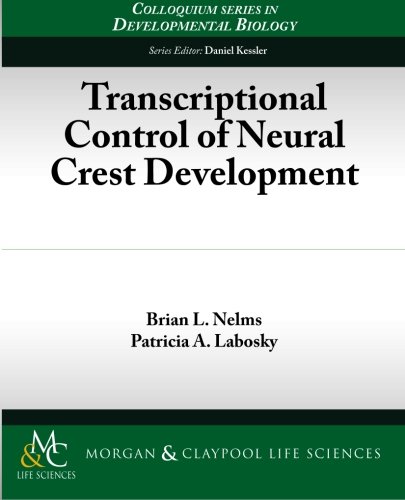
Transcriptional Control of Neural Crest Development
by Brian L. Nelms, Patricia A. Labosky
Publisher: Morgan & Claypool Life Sciences 2010
ISBN/ASIN: 161504048X
ISBN-13: 9781615040483
Number of pages: 240
Description:
The neural crest is a remarkable embryonic population of cells found only in vertebrates and has the potential to give rise to many different cell types contributing throughout the body. These derivatives range from the mesenchymal bone and cartilage comprising the facial skeleton, to neuronal derivatives of the peripheral sensory and autonomic nervous systems, to melanocytes throughout the body, and to smooth muscle of the great arteries of the heart.
Download or read it online for free here:
Read online
(online html)
Similar books
 Translational Pain Research: From Mouse to Man
Translational Pain Research: From Mouse to Manby Lawrence Kruger, Alan R. Light - CRC Press
Bringing together recent advances in modern neuroscience regarding genetic studies in mice and humans and the practicality of clinical trials, this volume effectively bridges the gap between basic research and patient care.
(9801 views)
 Cellular and Molecular Neurobiology
Cellular and Molecular Neurobiologyby John H. Byrne, et al. - UTHealth
Contents: Introduction to Neurons and Neural Networks; Resting Potentials & Action Potentials; Ionic Mechanisms of Action Potentials; Propagation of Action Potentials; Synaptic Transmission at the Skeletal Neuromuscular Junction; etc.
(12157 views)
 Neural Plasticity and Memory: From Genes to Brain Imaging
Neural Plasticity and Memory: From Genes to Brain Imagingby Federico Bermudez-Rattoni - CRC Press
A comprehensive, multidisciplinary review, this book provides an in-depth, up-to-date analysis of the study of the neurobiology of memory. Leading specialists share their scientific experience in the field, covering a wide range of topics.
(11747 views)
 Developing Synaesthesia
Developing Synaesthesiaby Nicolas Rothen, Julia Simner, Beat Meier - Frontiers Media SA
Synaesthesia is a condition in which a stimulus elicits an additional subjective experience. The aim of this book on synaesthesia is to provide novel insights into the development of synaesthesia both in its genuine and acquired form.
(7372 views)